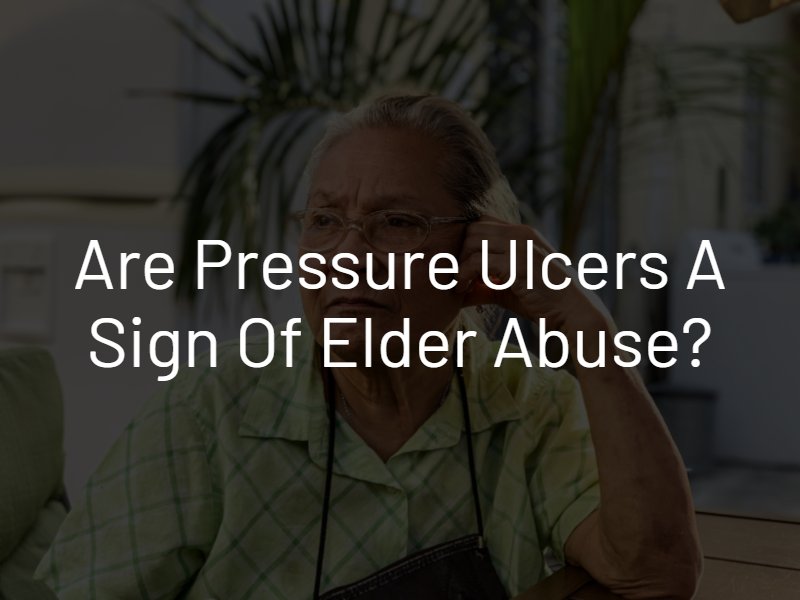Elder abuse is a terrible crime that affects tens of thousands of senior citizens around the US. It refers to the intentional harming of an elderly individual (someone 65 or older). Elder abuse can affect a victim physically, emotionally, mentally and/or financially. Elder abuse can present itself in many ways. One is the physical neglect of an elderly person in someone else’s care, such as malnourishment, unattended injuries, infections and pressure ulcers.

What Are Pressure Ulcers?
Pressure ulcers, commonly known as bedsores, are skin injuries that can affect underlying tissues – sometimes going as deep as the bone. They can develop due to prolonged pressure or friction on one part of the body. This can interrupt the flow of blood to the body part, making the skin more vulnerable to damage and injuries. This can be enough to cause an ulcer, or painful sore, on the skin.
Pressure ulcers can be painful and lead to life-threatening health problems. Depending on the stage a caregiver allows the bedsore to progress, it could affect the deep tissues of the body, including the muscles and cartilage. It could ultimately lead to health complications such as cellulitis, bone infections, joint infections, sepsis and a type of cancer called squamous cell carcinoma. It is a caregiver’s responsibility to take reasonable steps to prevent pressure ulcers, as well as to properly tend to them if they develop.
How Are Pressure Ulcers Prevented?
Pressure ulcers are almost always preventable. This specific type of ulcer only arises from persistent pressure, friction or shearing on one part of the body. They are most common in places that typically connect with the most pressure on a bed or wheelchair, such as the sit bones, sacrum, hips, heels, spine, shoulder blades and the back of the skull. Health care workers, nursing home employees and official caregivers should know about bedsores and how to reasonably prevent them in residents who are bedridden or confined to wheelchairs.
Most facilities that care for people at risk of developing pressure ulcers, including the elderly and people with mobility limitations, have protocols in place to prevent bedsores. These protocols can include implementing schedules of when caregivers should turn over or exercise residents or patients to keep blood flowing evenly. Providing proper nourishment and hydration can also help prevent pressure ulcers by keeping the skin strong and healthy. Keeping an elderly person clean is also important, as this can prevent the skin from staying wet for long periods – something that can increase the risk of skin tears, sores and infections.
When Should You File an Elder Abuse Claim?
Although pressure ulcers do not automatically mean the patient or nursing home resident is suffering from elder abuse, it is a red flag. The bedsore might have developed due to physical abuse or neglect. Neglect is more common, as bringing an elder abuse claim takes proving the offender intentionally meant to injure or harm your loved one. An injury claim based on negligence, however, could match your loved one’s situation. You might have grounds for a negligence claim if you believe someone neglected to properly care for your loved one, leading to the development of the pressure ulcer.
Nursing home neglect can take many forms, including allowing bedsores, pressure ulcers or infections to form. Hire an elder abuse lawyer to help your family establish that a reasonable and prudent facility or staff member would have prevented the pressure ulcer. The courts may grant your loved one a financial award if your lawyer can fulfill this burden of proof. The failure to provide a reasonable level of care to an elderly individual could mean payment for related medical bills, pain and suffering, lost quality of life, and wrongful death. Speak to a Omaha personal injury lawyer today about a potential elder abuse or neglect claim if you or a loved one has a pressure ulcer.
